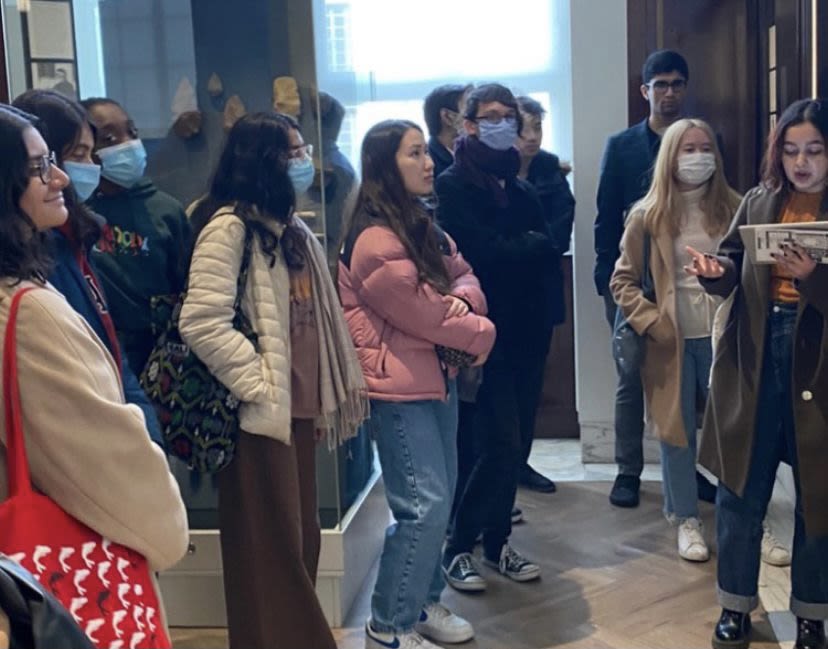Decolonisation in London Universities
Two years on from Black Lives Matter
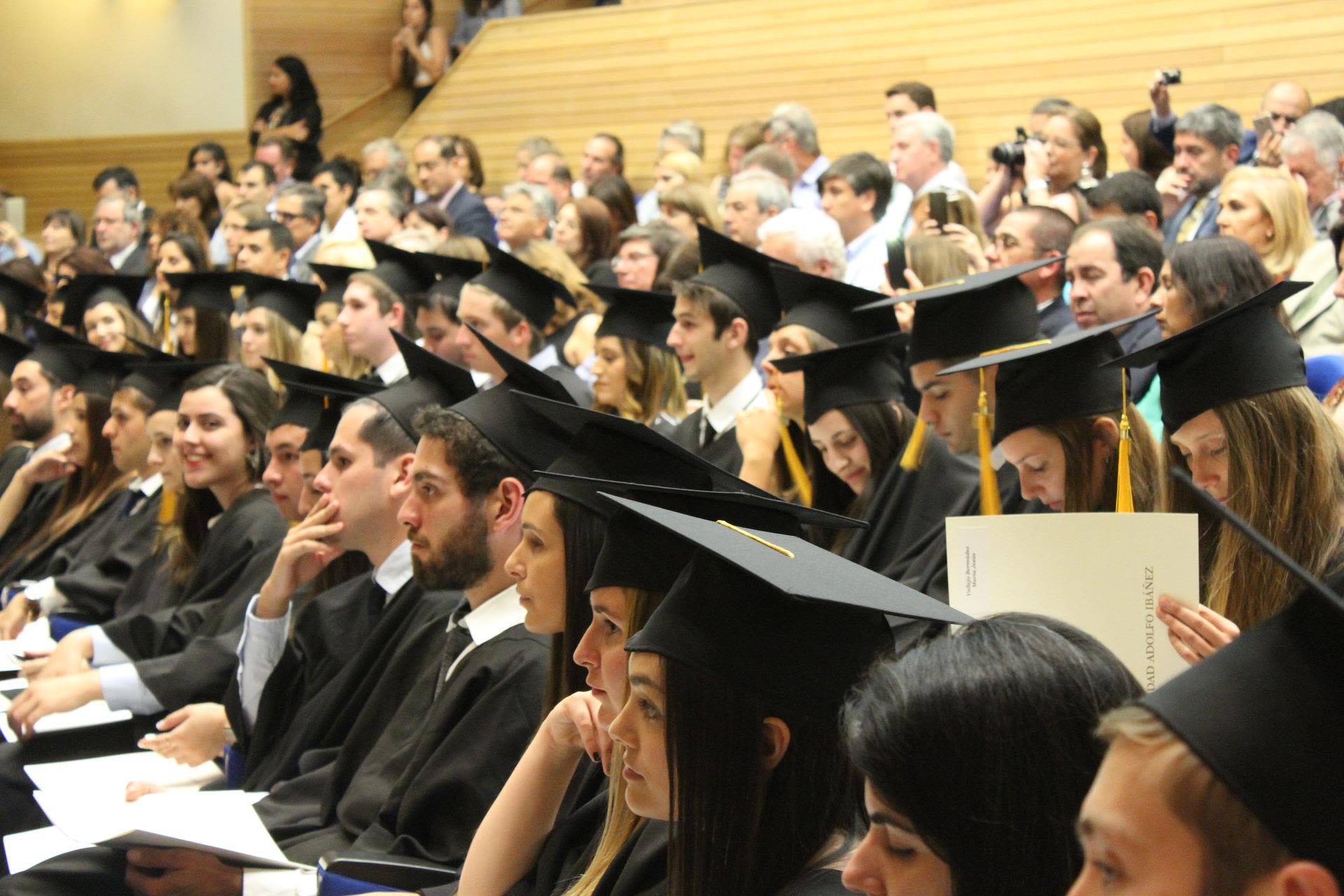
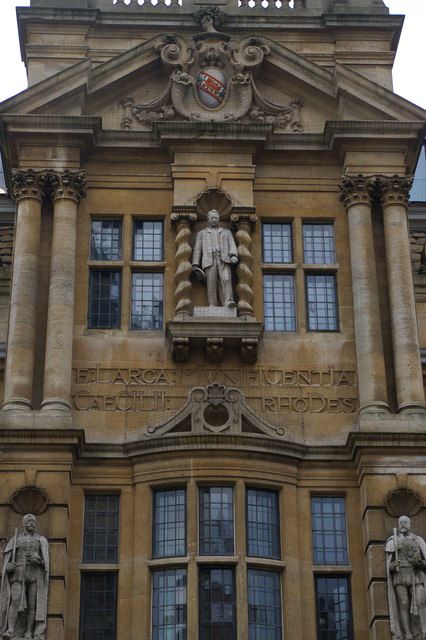
Cecil Rhodes Statue at Oriel College, Oxford | Credit: Christopher Hilton
Cecil Rhodes Statue at Oriel College, Oxford | Credit: Christopher Hilton
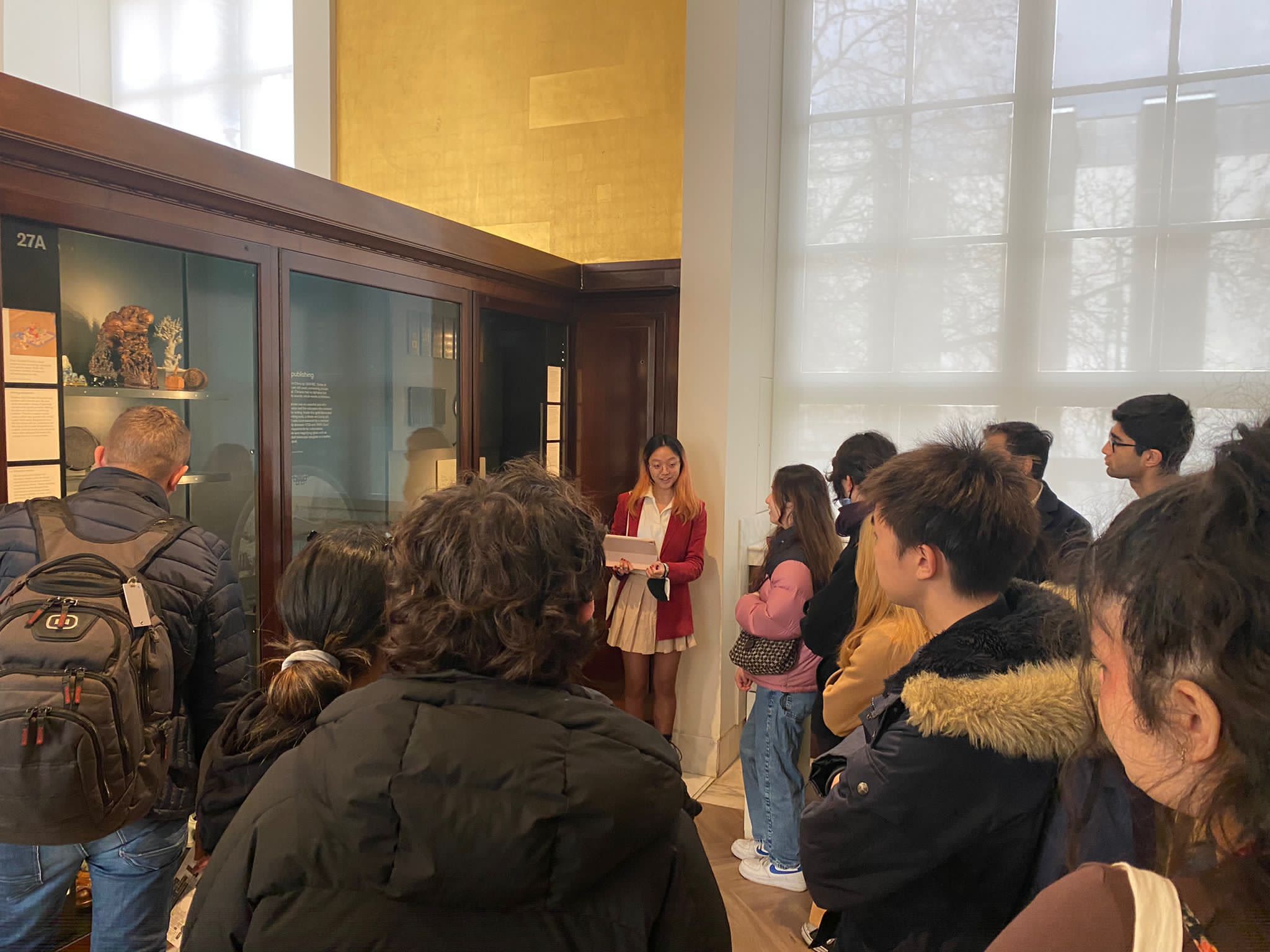
University students on a decolonised tour of the British Museum | Credit: London Classicists of Colour
University students on a decolonised tour of the British Museum | Credit: London Classicists of Colour
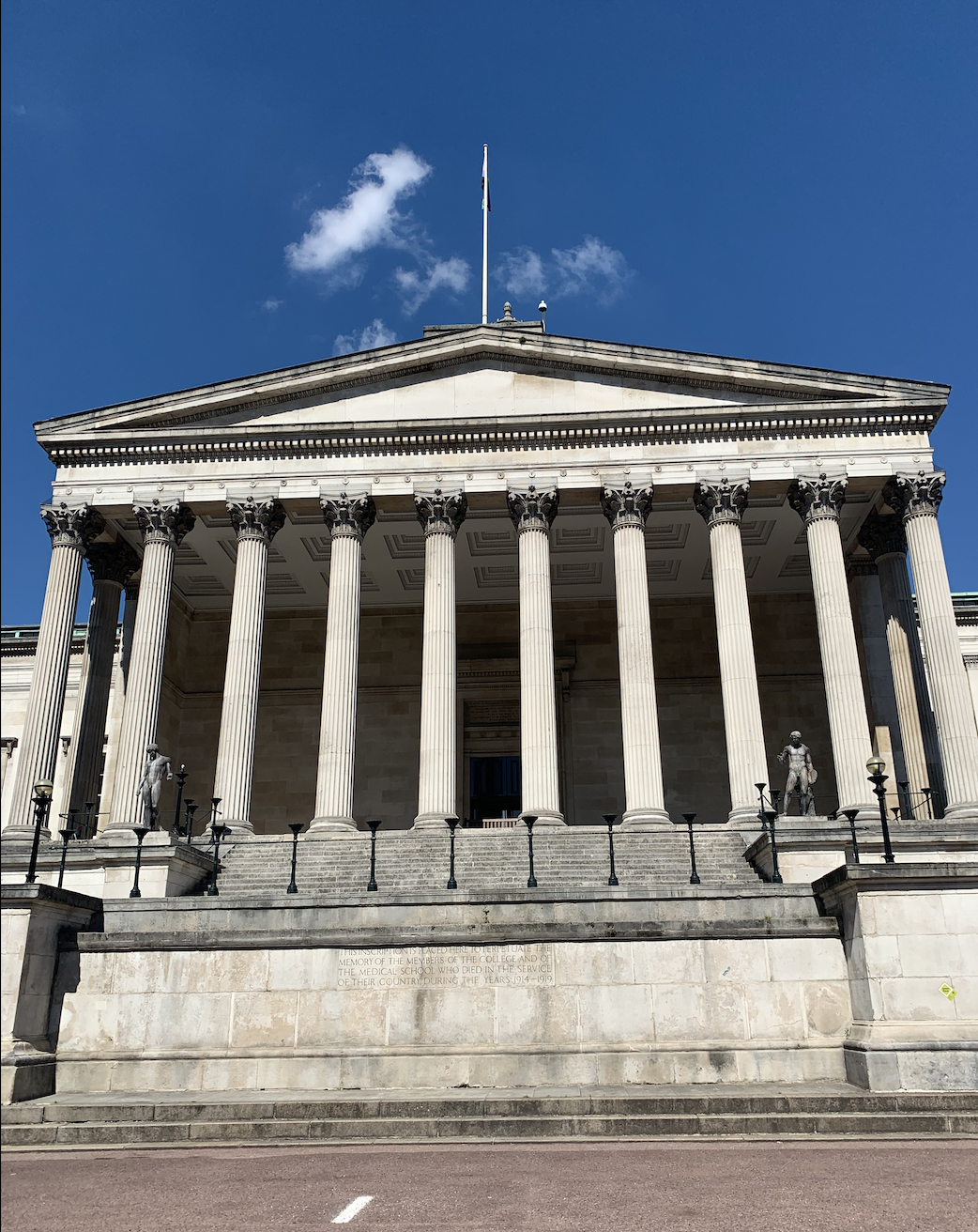
UCL Portico | Credit: Asyia Iftikhar
UCL Portico | Credit: Asyia Iftikhar
Universities across the UK have had to face a reckoning in the aftermath of the Black Lives Matter movement in June 2020. For years there have been campaigns across the country to decolonise higher education institutions. This has included 'The Free Black University', a project founded to address and transform the education system to support Black students and the highly-publicised #RhodesMustFall campaign in Oxford seeking to remove a colonial era statue from outside Oriel College. Despite this ongoing work, in 2020 research found by The Guardian showed that only a fifth (24 out of 128) of UK universities were committed to decolonisation.
As the data below shows, although there is solid representation of Black, Asian and Minority Ethnic (BAME) students in the UK, there is a huge disparity between staff and students. There is a particular underrepresentation of Black professors in the UK. In this context professor is defined as "senior Academic appointments which may carry the title of Professor but which do not have departmental line management responsibilities."
A key issue universities have faced is retaining BAME students beyond undergraduate level, something they continue to struggle with. Recent data shows that in Black students in England drop from 9% to 5% from undergraduate to post-graduate research. This is compared to the jump from 70% to 79% for White students.
A diverse staff and student cohort comes hand in hand with a diverse curriculum, and adapting the texts and modules to make them more inclusive is also a key aim of the decolonisation movement.
In London there are a number of decolonisation groups that have sprung up over the past few years that are working toward decolonising their universities, including Kings College London (KCL), London School of Economics (LSE) and University College London (UCL). From wider decolonisation groups working toward expanding curriculum, student and staff intake to subject specific movements - have London universities made any progress?
King's College London (KCL)
Despite London being one of the most diverse cities in the UK, KCL does not reflect that in its staff and student diversity. 2020-21 statistics showed that although 10% of the student body identified as Black, they only make up 1.8% of the Academic posts. This reduces to 0 for people on 'professor' contracts. Although KCL have disputed this data and said they have at least 5 Black professors. If we expand this further, BAME students make up 47.6% of (UK students) the cohort compared to 8% of professors.
Decolonise KCL is a student initiative that believes in decolonising the curriculum and creating a more diverse student and staff body. According to their website they "aim is to start conversations on race and the legacy of colonialism within King’s College London, and to ensure that the voices of people of colour are heard."
The society has hosted talks, events and fundraisers discussing the practical ways we can decolonise reading lists, modules and wider teaching in higher education.
Although there is yet to be a wider effect, KCL itself has set out its aim. In KCL's annual EDI report, the director of EDI, Sarah Guerra said:
"Covid confirmed for me what I already know, that where inequalities exist, they get exacerbated by crises like a global pandemic. But Covid also changed my perspective in that this is undiscriminating and the effects are unpredictable and it has made me want to be much more agile, flexible and spontaneous in the way I live my life and in how we work on inclusion."
London School of Economics (LSE)
Known for its global diversity over 50% LSE's student cohort is made up of overseas students. Despite its global appeal, LSE has come under fire for its lack of diversity over the past decade. Between 2012 and 2015 LSE only had one Black professor. In recent years there has been a focus to diversify their staff to reflect its student cohort with little success. In its 2019-2020 equality report Black, Asian and Minority Ethnic (BAME) made up 31.7% of the staff.
Although this is an improvement from the previous year (30.7%), this does not tell the whole story. According to 2019-20 HESA data, out of 310 professors, none of them identified as Black. Data from 2020-21 shows there has been no progress. Currently Black people hold only 2.2% of any academic posts at LSE.
However, there has been some progress according to second year LSE History student Arya Barkesseh. He said: "For changes I would like to see, it’s changes with the wider trends within historiography: wanting to prioritise POC authors in courses with content outside Europe and several of my courses are honestly doing a good job on it and we review the traditional historiography but then spend 5 weeks on revisionist perspectives from contemporary scholars."
However he concluded: "Do i think LSE is doing enough at the moment? No it absolutely needs more."
Once more looking at UK students, UCL is similar to KCL, with 6.2% Black students and 43% BAME students. However, when we look at staff representation we discover the same story. 0.3% of professors identify as Black (5 out of 1,415), while 10% fall under the BAME umbrella.
London Classicists of Colour (LCOC) is a student society originally formed by UCL students in light of the Black Lives Matter movement. Since forming they have expanded their reach to across London universities with the hope of decolonising the classics curriculum across London. Since starting the UCL Greek and Latin department has committed to expanding their modules on ancient languages.
Alongside hosting workshops, safe spaces, museum tours and discussion groups they are also creating an open letter which will be distributed to London universities demanding change on everything from a curriculum level to student and staff diversity.
Reyna Jani, 2nd year Ancient World student and President of LCOC, said: "Most universities are engaging [with LCOC] in different ways whether through sharing our events or actually bringing in modules that cater to race and antiquity.
"More important the support from individual staff on a personal level has been really valuable. We are seeing an increasing sense that academics are looking to boost our voices."
London Classicists of Colour (LCOC) President: Reyna Jani
London Classicists of Colour (LCOC) President: Reyna Jani
Are you a London university student?
Take our poll below to give your thoughts
